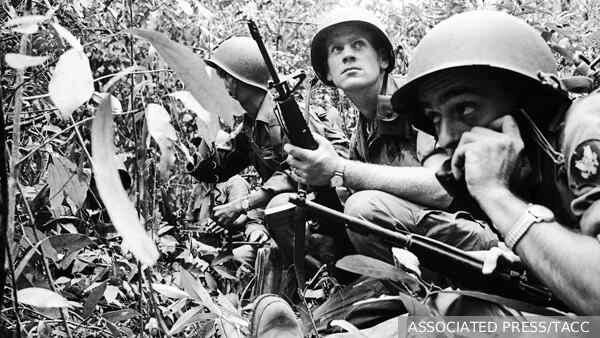Robert McNamara has a very interesting memoir, ‘Looking Back,’ much of which is about the Vietnam War
A very interesting read – in terms of understanding how the American establishment thought at the time. McNamara is known to be considered an extremely effective defence secretary, a man who pioneered a business-like approach to the field. He saw the military as a corporation in need of renewal and new management schemes.
And it is all the more important that he writes about war. Under Eisenhower, the Americans considered the main problem in Southeast Asia not Vietnam at all, but Laos, and there was even a plan for a military invasion.
The Americans, as McNamara writes, overestimated the ties between the USSR and China, believing that the two communist powers definitely have a common opinion on the situation in Vietnam and equally ready to support the government of the North. In this the Americans were convinced by the experience of the Korean War.
The situation in Vietnam as a whole, the balance of power, the influence of political groups in South Vietnam – on all these issues, the White House and the Pentagon had very vague ideas. They considered President Ziem to be a man who shared Western liberal values on the simple grounds that he had graduated from a Catholic college. Interestingly, he was particularly influenced by his own brother’s wife, ‘a demonic and mysterious woman.’ In general, reading the book, one compares the situation with the Ukrainian one.
McNamara writes that there were simply no experts on the region. However, in reality there were: political scientists, military analysts, sociologists. It is just that the establishment did not listen to them, McNamara included. And here is the most interesting thing.
The American leadership realised by the end of 1967 that it was unlikely to win in Vietnam. And even sending additional units is unlikely to change the balance of power. But both McNamara and President Johnson time after time made decisions to continue supporting the South Vietnamese government, sending troops or weapons. Even in spite of all the obvious problems with the South Vietnamese government. To a large extent between 1961 and 1963, the American authorities were misinformed about the military successes of the Allies and their military advisors. Everyone was trying to paint pretty reports.
‘Authorities in both provinces and districts regarded the ‘invention of statistics’ that would satisfy the leadership almost as their duty.’
And American politicians were also convinced that the withdrawal from Vietnam would be perceived by Moscow and Peking as a weakness of the United States. And Soviet expansion, as well as Soviet influence, in Indochina would only increase. That is why McNamara insisted on continuing to support South Vietnam.
Actually, this largely explains the current US policy on the Ukrainian issue. Kiev will be supported as long as possible, because for Washington to retreat is tantamount to losing face and demonstrating weakness of positions. And it is absolutely useless to expect that something will change under Trump. The war in Vietnam was supported by Kennedy, who for some reason was regarded in the USSR as a friend and peacemaker.
However, of course, the US drew conclusions from Vietnam. They do not send troops to Ukraine directly. Mercenaries do not count. Now the Americans fight only with the forces of the South Vietnamese army, or rather, the Ukrainian Armed Forces, which they do not feel sorry for. And for whom they will not have to answer to voters and descendants. That’s the difference.

